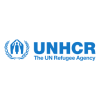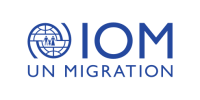Human Capital Development
Alignment with SDGs

Three years after the Earthquake - A story of building back better
The story takes us initially to Qerekë, one of the many villages heavily affected by the 2019’s devastating earthquake where UNDP’s intervention under UN’s Earthquake Response Programme has changed lives.
36 education facilities, as the new kindergarten and school in Qerrekë were built, or rebuilt, across the many areas affected by earthquake under the #EU4Schools project funded by EU and support of UNDP. 29 more such are in the process of building.
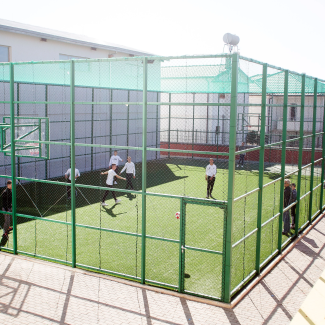
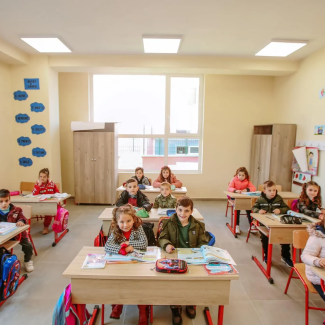
Additional support for rebuilding schools was provided by the Governments of Croatia, Denmark and the United Kingdom The earthquake took a heavy toll on businesses, especially the small ones and the UN earthquake response included interventions to stimulate the economy by revitalizing the competitiveness of micro, small, and medium-sized enterprises.
Read the original story here.
SOCIAL PROTECTION
The UN support to the social protection reform in the country in 2022 contributed to advancing the legal, policy and strategic framework, ensuring that social services are adequately resourced and monitored, and strengthening institutional capacities for adequate implementation at both the central and local level. At the central level, the following key achievements were attained: Ministry of Health and Social Protection (MoHSP) finalized the national Social Protection Strategy 2020–2023 annual progress report and started preparations for the new Strategy 2024–2030, developed a new Social Inclusion Policy Document 2023–2027, identified gaps in social services funding to ensure implementation of the Social Fund in full compliance with the approved legal framework, initiated the amendment process of Law no. 22/2018 on Social Housing and implementation of the Social Fund and National Exit Programme for economic aid recipients, rolled out the new national disability reform, established the Order of Social Workers in Albania, implemented the new Action Plan on People with Disabilities 2021–2025 and National Action Plan for Equality, Inclusion and Participation of Roma and Egyptian in Albania (2021–2025), and identified steps to reform the childcare system and monitoring of the Deinstitutionalization (DI) National Action Plan 2020–2022, paving the way for the development of a new DI Action Plan in the country vis-à-vis the new Social Protection Strategy. Fifty-five frontline professionals working in the Residential Care Institutions were trained in the DI process in close coordination with the State Social Service. The issuance of the first ever biometric ID residence permits with numbers compatible with the e-Albania system benefitted two refugees in the country.
Several UN studies informed public policies, identified innovative mechanisms and resources for the sustainability and upgrading of social services in Albania, and raised awareness on issues related to the provision of adequate services to vulnerable groups.
Findings from the impact analysis of public investments in childcare and child and family allowance on poverty reduction, human development and gender equality (GE), including a feasibility study of family and child allowance based on the impact analysis, will be discussed in dialogue tables with partners in 2023. The documented challenges and opportunities of the 61 municipalities to finance social care services informed them on how to mobilize funds from both local revenues and the state social protection budget. The feasibility study on the long-term care support system in Albania focused on the living conditions of older persons, healthy life expectancy, and institutional care, among others. The reports on the effectiveness and efficiency of the Social Cash Assistance Programme and on assessment of the capacity of the State Inspectorate of Labour and Social Services are finalized. The research studies on 1) childcare costs, fiscal revenue effects and gender-centred multi-dimensional vulnerability, and 2) financing a social protection floor for vulnerable women, girls and children in Albania provide tangible evidence on how gender-sensitive public investment has had a significant positive impact on who benefits from childcare and job creation, and provides essential information for policymakers on gender-sensitive fiscal policy measures to empower women economically.
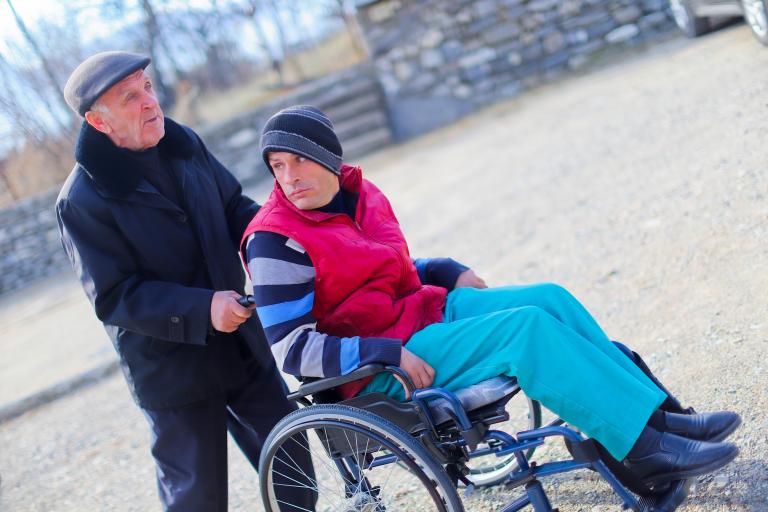
Working directly with vulnerable and marginalized people that are on the receiving end of social services to utilize information, skills and opportunities for social protection and inclusion, as well as strengthening capacities of change agents, UN supported a nationwide communication campaign, reaching 70,000 persons, informing the public about the advances made in social care reform and development of new ways of providing social care support and promoting child financial and material well-being in Albania in line with EU standards. Some 7,500 Persons with Disabilities (PwD) in Divjake, Kamez, Kruje, Patos and Rrogozhine were empowered and increased their participation in decision-making processes, 7,000 people were informed on assistive devices for PwD through social media campaigning, and 1,302 people (40% Roma and Egyptians) in Divjake, Durres, Lushnje and Tirane were provided with integrated social services. Based on Law no. 121/2016 ‘On Social Care Services’, new models of community-based social services for disad Development By 2026 there is increased and more equitable investment in people, removing barriers and creating opportunities for those at risk of exclusion.
Working directly with vulnerable and marginalized people that are on the receiving end of social services to utilize information, skills and opportunities for social protection and inclusion, as well as strengthening capacities of change agents, UN supported a nationwide communication campaign, reaching 70,000 persons, informing the public about the advances made in social care reform and development of new ways of providing social care support and promoting child financial and material well-being in Albania in line with EU standards. Some 7,500 Persons with Disabilities (PwD) in Divjake, Kamez, Kruje, Patos and Rrogozhine were empowered and increased their participation in decision-making processes, 7,000 people were informed on assistive devices for PwD through social media campaigning, and 1,302 people (40% Roma and Egyptians) in Divjake, Durres, Lushnje and Tirane were provided with integrated social services. Based on Law no. 121/2016 ‘On Social Care Services’, new models of community-based social services for disadvantaged people were introduced in Divjake and Patos, including a) developmental therapy for PwD, especially for children of age 0–16 years, b) emergency assistance for women who are victims of domestic violence, c) home care assistance for older persons living alone, and d) assistance for persons in emergency situations. The capacity of 70 professionals from 15 municipal community centres for PwD increased for the provision of integrated services, especially for children with intellectual disabilities. Five Albanian sign language teachers graduated in June after successfully completing a unified and accredited course for the profession of Albanian sign language instructor, while standards for professional development and certification of Albanian sign language interpreters were developed. Through partnership with the Quality Assurance Agency for Pre-University Education (Agjencia e Sigurimet të Cilesisë së Arsimit Parauniversitar, ASCAP) 250 members of 60 professional networks of assistant teachers increased their capacities in inclusive education for students with disabilities.
Education
Working closely with the Ministry of Education and Sports (MoES) and other actors to implement the National Education Strategy 2021–2026, especially with a focus on the most marginalized children and youth, UN in Albania contributed in 2022 to enhancing evidence-based advocacy and action to improve learning. A series of policy analyses and exchange was conducted, using a regional policy platform in which Albania participated, resulting in consolidated knowledge on robust inclusion policies and strategies to advance SDG 4. The dialogue for improving the future of education advanced through the Transforming Education Summit and National Education Congress. A review of career education and counselling in secondary schools will feed into the design and implementation of a career programme in schools. Three studies are being developed: 1) Knowledge, Attitudes and Practices, regarding dropout in upper secondary schools, 2) Financing for Early Childhood Education, and 3) Barriers to Accessing Early Childhood Education that will help achieve improved evidence-based advocacy.
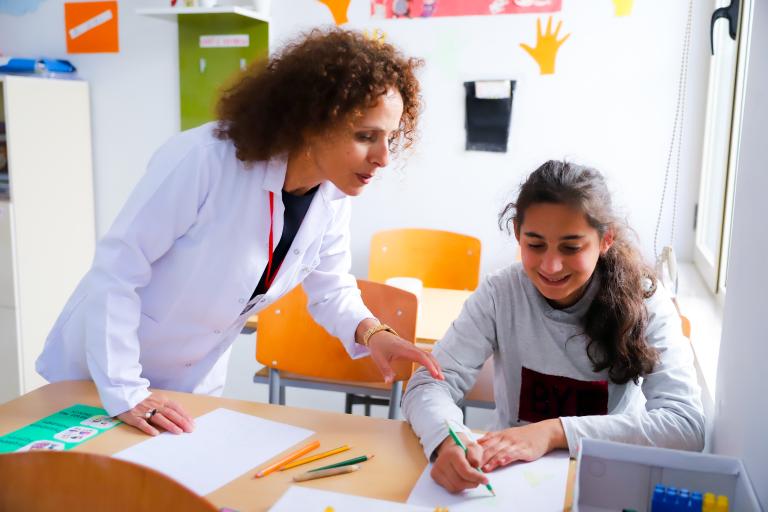
Improvement of education services through infrastructure and soft interventions was another key focus, where the UN supported the completion of civil works for repairing or rebuilding 36 education facilities affected by the 2019 earthquake in eleven partner municipalities, providing better services to 9,159 children and students, and 619 teachers. The construction works are ongoing for 16 other education facilities. Consultation meetings held in nine education facilities, with the participation of 209 people from communities, teachers, students, local authorities and representatives of supervision companies, revealed that 88 percent are ‘very satisfied with the rebuilt facilities’. The Business Intelligence dashboard is publicly accessible online, while EU4Schools portal (http://eu4schoolsportal.al) received 17,975 visitors who browsed 46,266 pages. Akademi.al advanced to becoming an open-source access platform for children, offering 27,126 interactive videos lessons, including videos for children with disability, and novel 136 interactive video lessons for pre-school children of age five years that are aligned to pre-school curricula were added during 2022. Akademi.al has been accessed by a total of 507,504 users.
Health Care and Shock Responsive Systems
The UN provided support to government for the country response to Covid-19, continuity of essential health services, including equal access to services, strengthening of the health system, focusing on resilience, and advocacy and partnerships on the rights to health and reducing inequalities. The key achievements of 2022 are reported below, while a summary of UN support to government on the Covid-19 response is provided in Annex A.
Advancing the regulatory and policy framework included strategic risk assessment (STAR) and development of the Public Health Risk Profile Albania 2022; revision of the MoHSP Emergency Operation Plan; incorporation of an Incident Management System at the MoHSP Emergency Operation Centre; development of a National Framework for joint investigation and response to outbreaks of zoonotic diseases; development of an Operational Plan for all hazards for Mother Tereza University Hospital Centre (UHC); preparation of Control of a Healthcare-Associated Infections Strategy; guidance for Primary Health Care Reconfiguration towards a model of integrated health and social services; development of a National Action Plan of Sexual and Reproductive Health and Rights 2022–2030, Contraceptive Security 2022–2026; Cancer Control Programme 2022–2030; National Action Plan on Health Promotion 2022–2030; evaluation of the National Action Plan for Mental Health in Albania, 2013–2022; and mapping of mental health services for children and adolescents as a basis for the development of the new Mental Health policy 2030 and updating of the Primary Health Care Mental Health Guidelines.
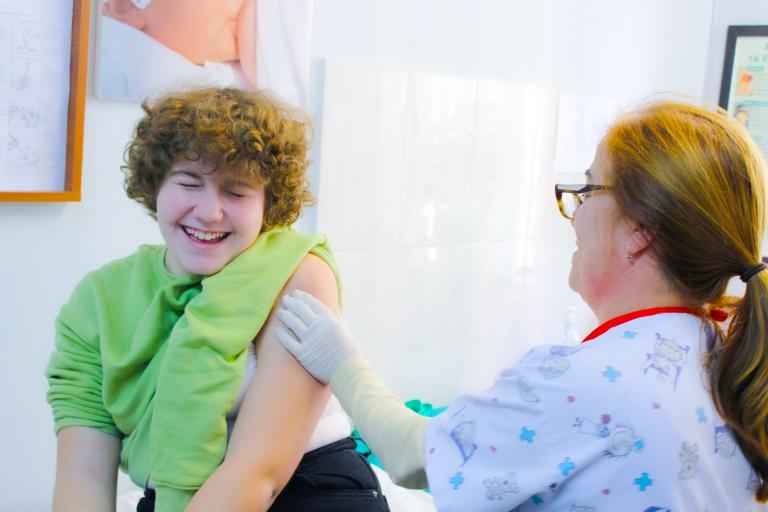
Inclusive Community Engagement
Aiming to develop mechanisms to ensure social inclusion and social protection system improvements in the long run lead to resilient and cohesive local communities, the UN contributed to strengthening national and local systems to support the effective socio-economic integration of returnees through mobilization of local partnerships and implementation of measures for sustainable reintegration. Three local multi-stakeholder platforms were established in and coordinated by the municipalities of Berat, Devoll and Fier. Local Roma and Egyptian returnee reintegration action plans were developed with these municipalities, adopted by Devoll and Fier, and elements implemented in all three municipalities, reaching 204 persons (50% females). A protocol of case management was designed for the reintegration of returnees with an integrated family-focused approach and started implementation in the three municipalities. A start-up programme was also initiated resulting in 156 applications of which 76 were preselected for support. The methodology and format of individual employability improvement plans were developed, resulting in 21 individuals employed through mediation. Two individuals participated in internships with the National Agency for Employment and Skills, and nine are part of active labour market measures. Seven Non-Governmental Organisations (NGOs) and CSOs were enabled to support returnees and their family members (368 in total; 50% females) in a variety of initiatives.
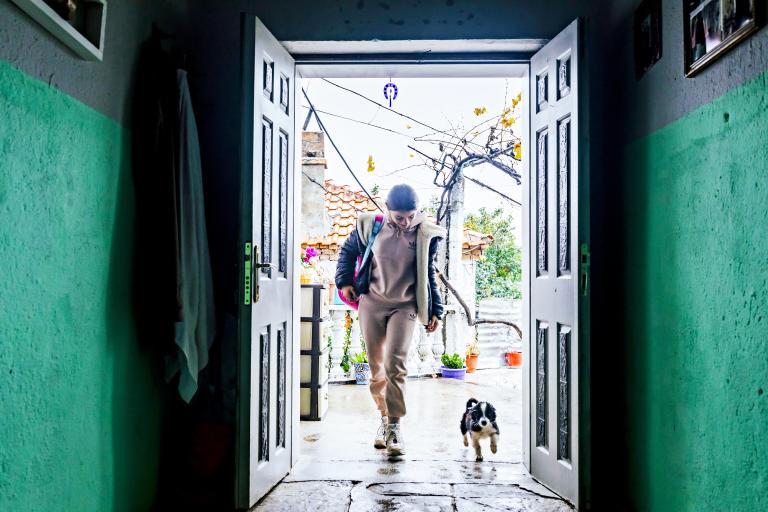
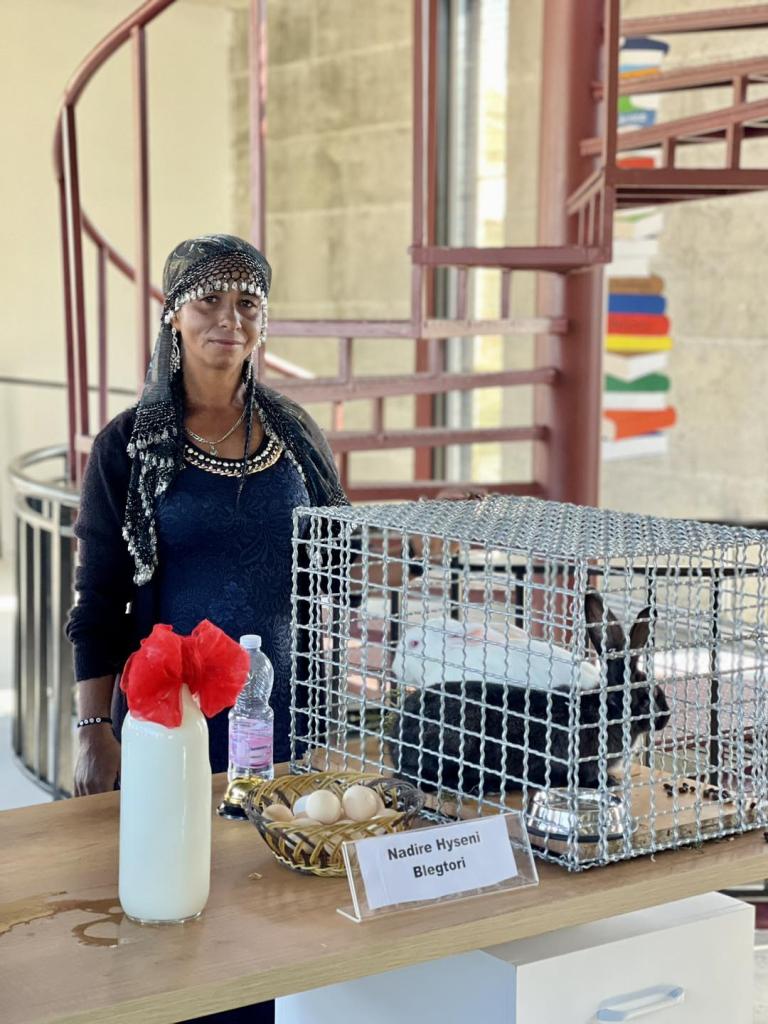
Results in Numbers
Health personnel trained
on cold chain assessment and integration and the Information System for the Surveillance of Infectious Diseases.
Repaired or rebuilt education facilities
affected by the 2019 earthquake in eleven partner municipalities, providing better services to 9,159 children and students, and 619 teachers.
Refugee children
have now ensured enrolment in the education system and all persons in need have access to public healthcare.
Vulnerable children
now have enhanced English language knowledge through the Akelius digital program.
Persons with disabilities
in Divjake, Kamez, Kruje, Patos and Rrogozhine were empowered and increased their participation in decision-making processes.
Members
of 60 professional networks of assistant teachers increased their capacities in inclusive education for students with disabilities, through a partnership with the Quality Assurance Agency for Pre-University Education.



